Peshawar explosion: Suicide bombing at Pakistan mosque kills dozens
The attack during Friday prayers has killed at least 56 people and injured nearly 200 others
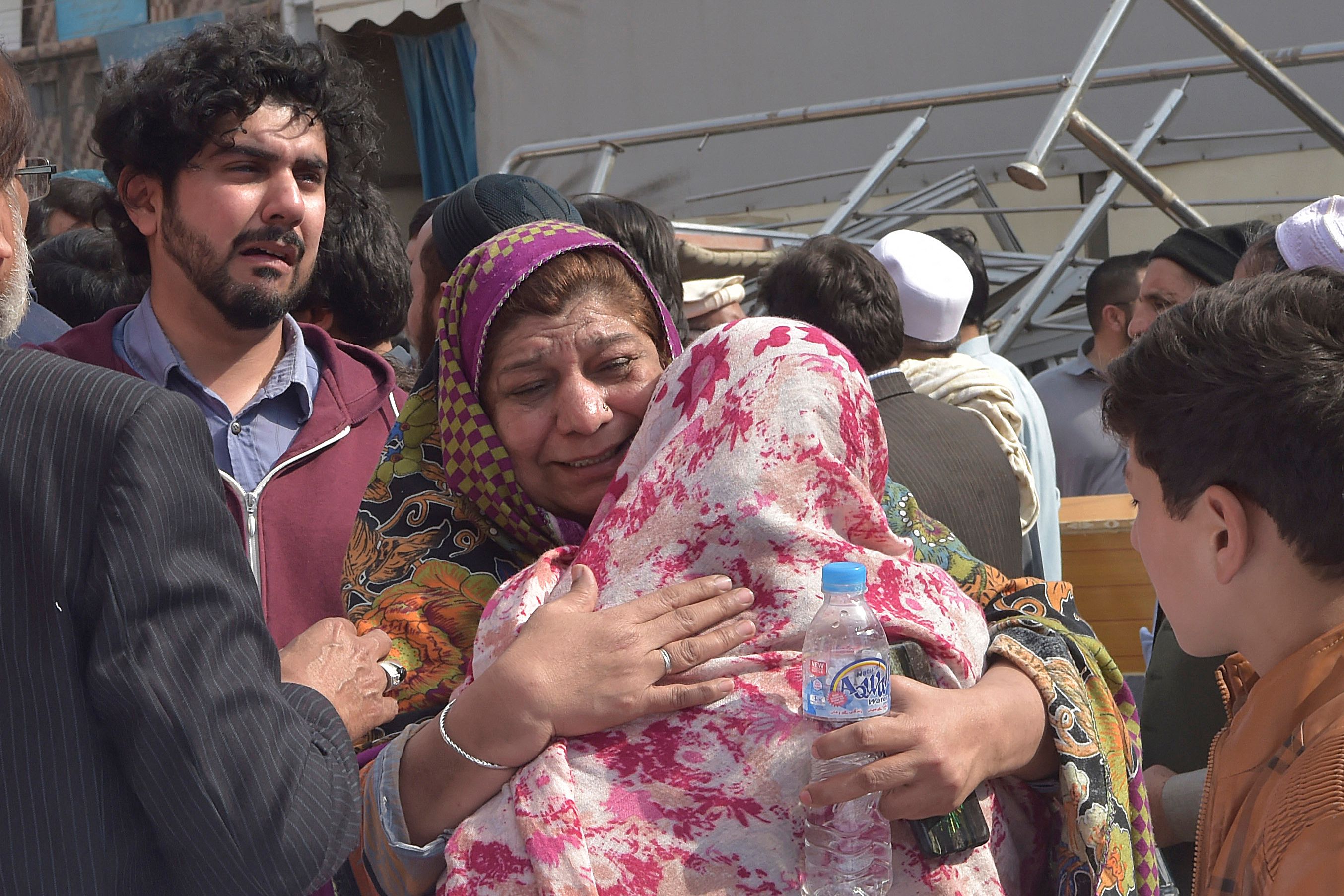
Your support helps us to tell the story
From reproductive rights to climate change to Big Tech, The Independent is on the ground when the story is developing. Whether it's investigating the financials of Elon Musk's pro-Trump PAC or producing our latest documentary, 'The A Word', which shines a light on the American women fighting for reproductive rights, we know how important it is to parse out the facts from the messaging.
At such a critical moment in US history, we need reporters on the ground. Your donation allows us to keep sending journalists to speak to both sides of the story.
The Independent is trusted by Americans across the entire political spectrum. And unlike many other quality news outlets, we choose not to lock Americans out of our reporting and analysis with paywalls. We believe quality journalism should be available to everyone, paid for by those who can afford it.
Your support makes all the difference.A suicide bombing at a Shia mosque in Pakistan‘s northwestern city of Peshawar during Friday prayers has killed at least 56 people and injured almost 200 others, according to police and hospital officials.
The death toll is expected to rise significantly as many of the 194 wounded are in critical condition.
Scores of victims were peppered with shrapnel, several had limbs amputated, and others were injured by flying debris.
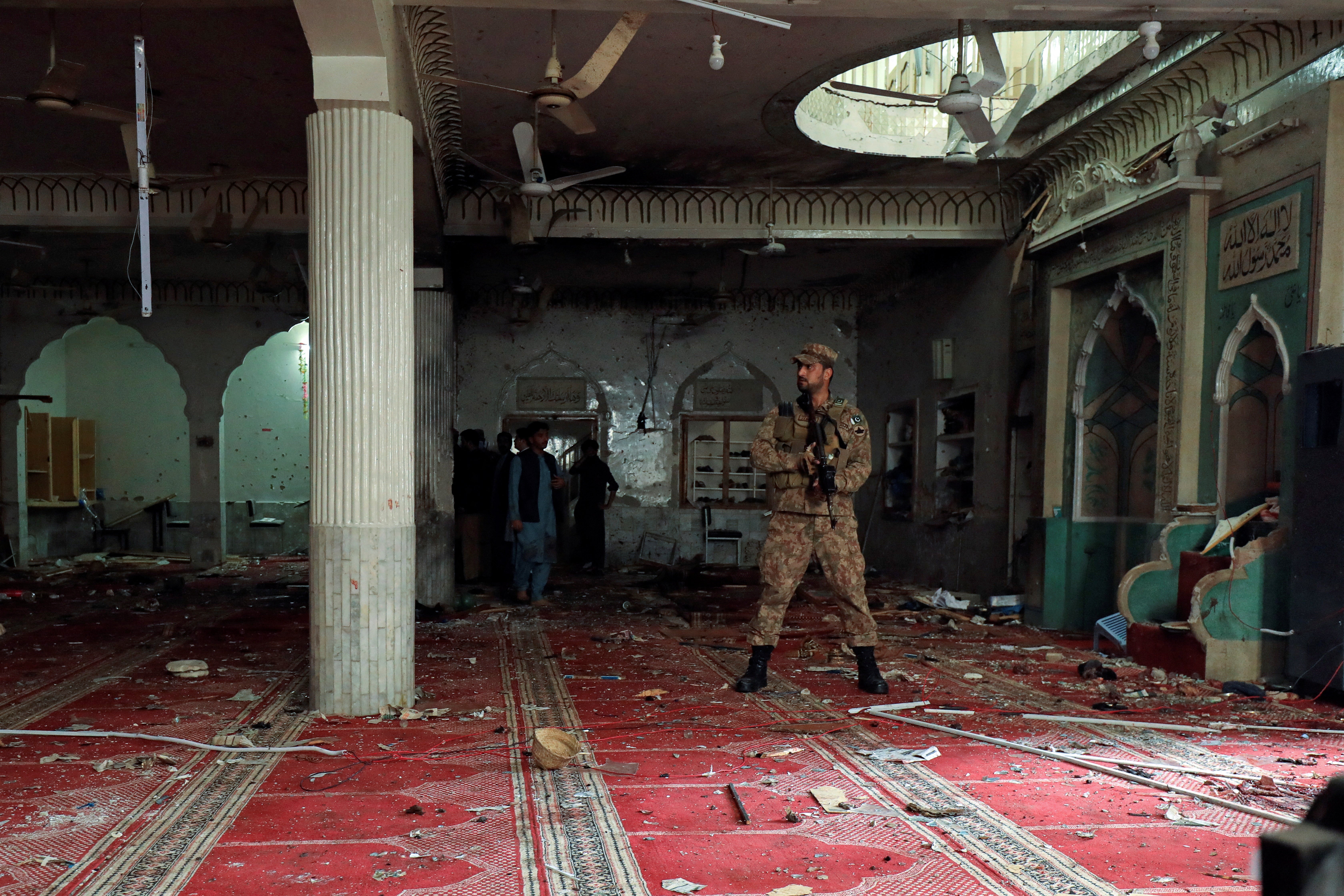
Pakistan’s prime minister, Imran Khan, strongly condemned the attack and directed the authorities to provide urgent care to the wounded.
No group immediately claimed responsibility for the attack, one of the deadliest in years on the country’s Shia minority.
They have long been targeted by Sunni Islamist militants, including Isis and Tehreek-e-Taliban Pakistan, also known as the Pakistani Taliban.
"We are in a state of emergency and the injured are being shifted to the hospital,” police officer Mohammad Sajjad Khan said after the attack. “We are investigating the nature of the blast but it seemed to be a suicide attack.”
Local police later said the violence started when an armed attacker opened fire on officers outside the Kucha Risaldar mosque in Peshawar’s old city, where worshippers had gathered for Friday prayers.
One police officer was killed in the gunfight, and another was wounded. The attacker then ran inside the mosque and detonated his suicide vest, according to the police.
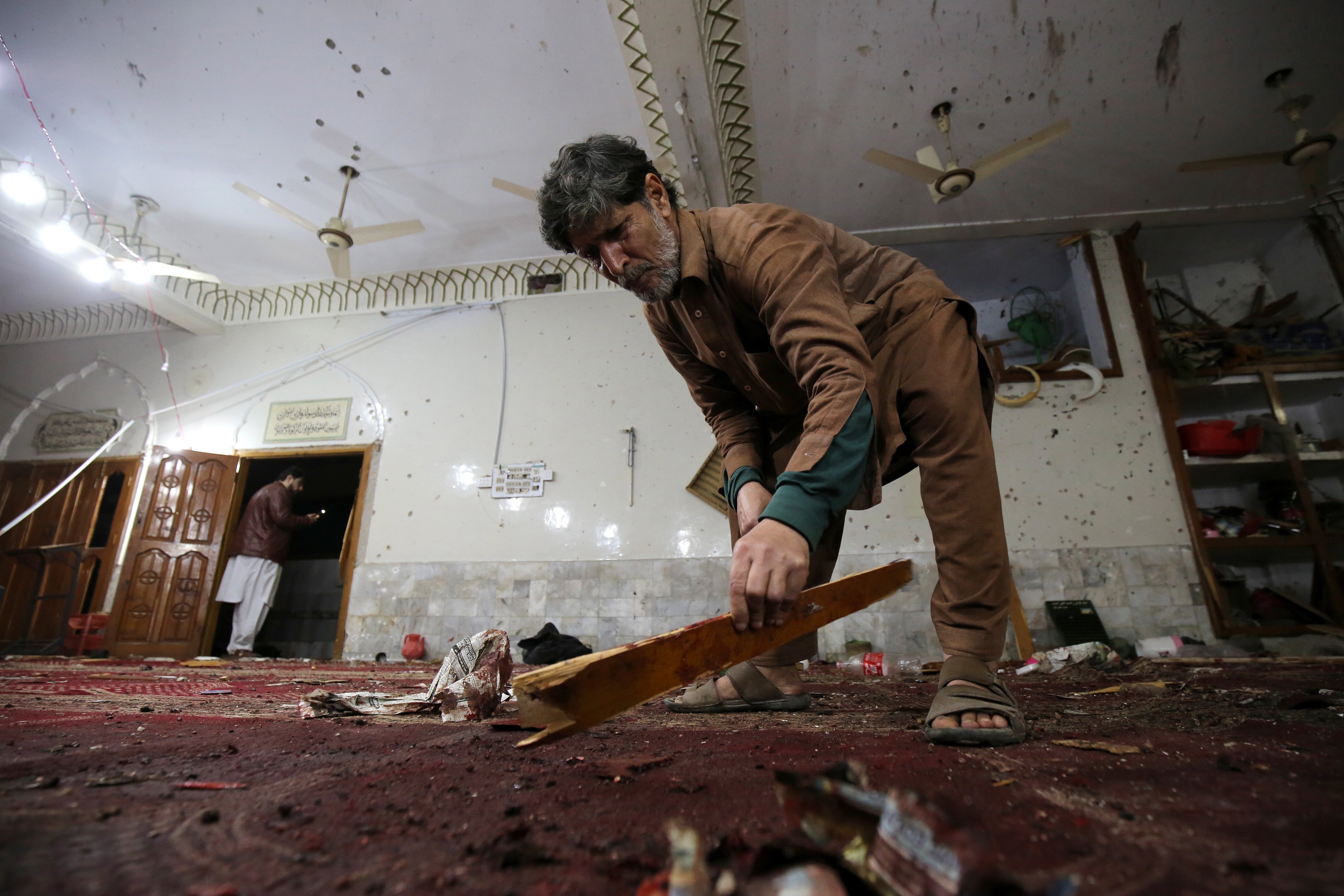
The suicide bomber had strapped a powerful explosive device to his body, packed with 5kg of explosives, said Moazzam Jah Ansari, the top police official for Khyber Pakhtunkhwa province, of which Peshawar is the capital.
The bomb was hidden beneath a large black shawl that covered much of his body, according to CCTV footage seen by the Associated Press.
Mr Ansari said the crudely made device was packed with ball bearings, a method of constructing a bomb designed to inflict the most carnage, by spraying a larger area with deadly projectiles.
Following the bombing, ambulances rushed through congested narrow streets carrying the wounded to the Lady Reading Hospital.
Hospital staff said there was chaos in the emergency department as doctors struggled to move the injured into operating theatres.
Hundreds of relatives gathered outside the hospital, many of them wailing and beating their chests, pleading for information about their loved ones.
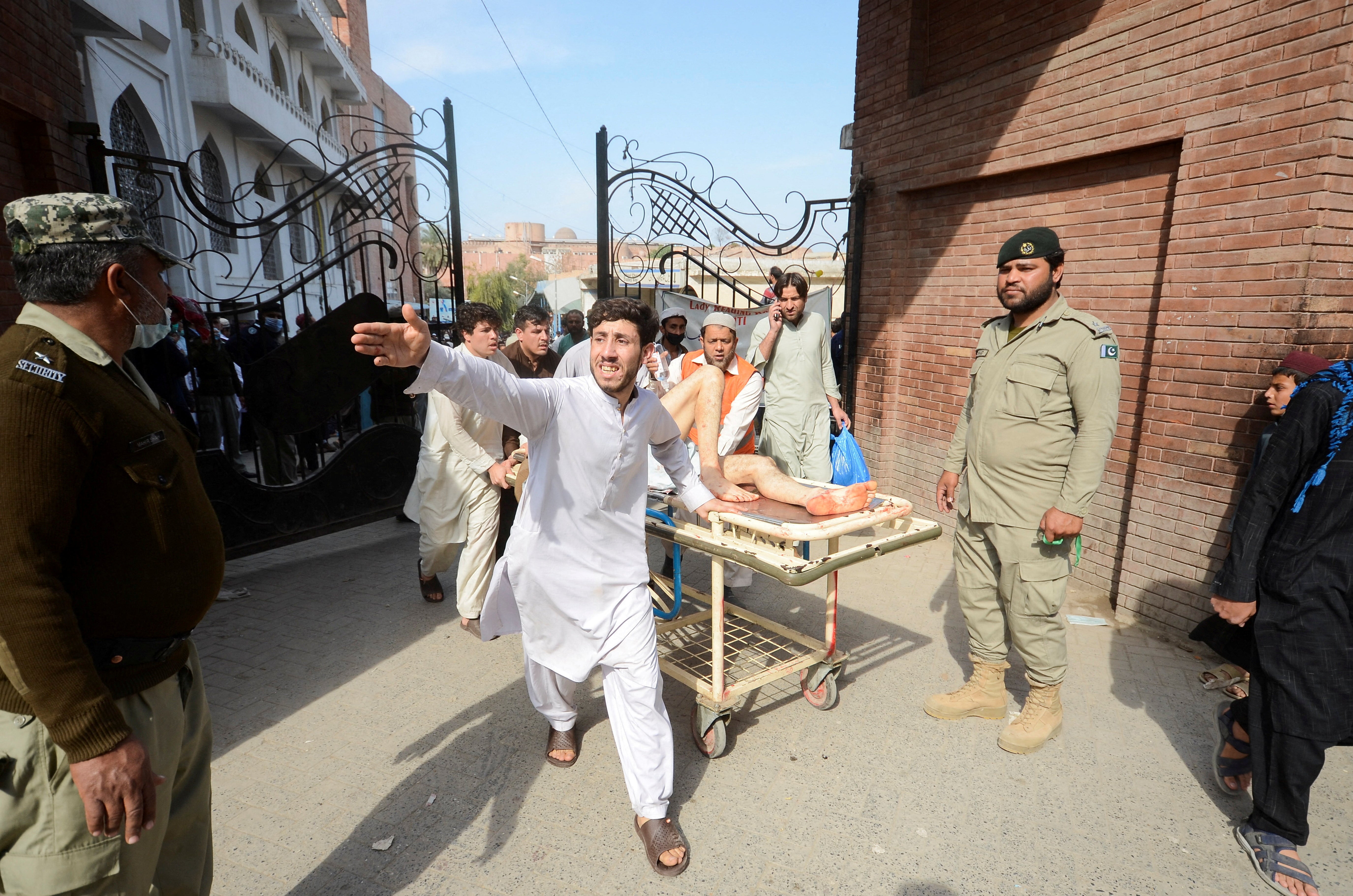
Outside the mosque, Shias pressed through the cordoned-off streets. Kucha Risaldar mosque is one of the oldest in the area, predating the creation of Pakistan in 1947 as a separate homeland for the Muslims of the Indian subcontinent.
Shayan Haider had been preparing to enter the mosque when a powerful explosion threw him to the ground. "I opened my eyes and there was dust and bodies everywhere," he said.
Retired army officer Sher Ali, who had been inside the mosque at the time of the explosion, was injured by flying shrapnel. He made an impassioned plea to the Pakistani government for better protection of the country’s Shias, who have faced repeated attacks.
"What is our sin? What have we done? Aren’t we citizens of this country?" he said at the emergency department, his white clothes splattered with blood.
In recent years, Pakistan‘s military has reined in almost daily attacks by clamping down on militant groups.
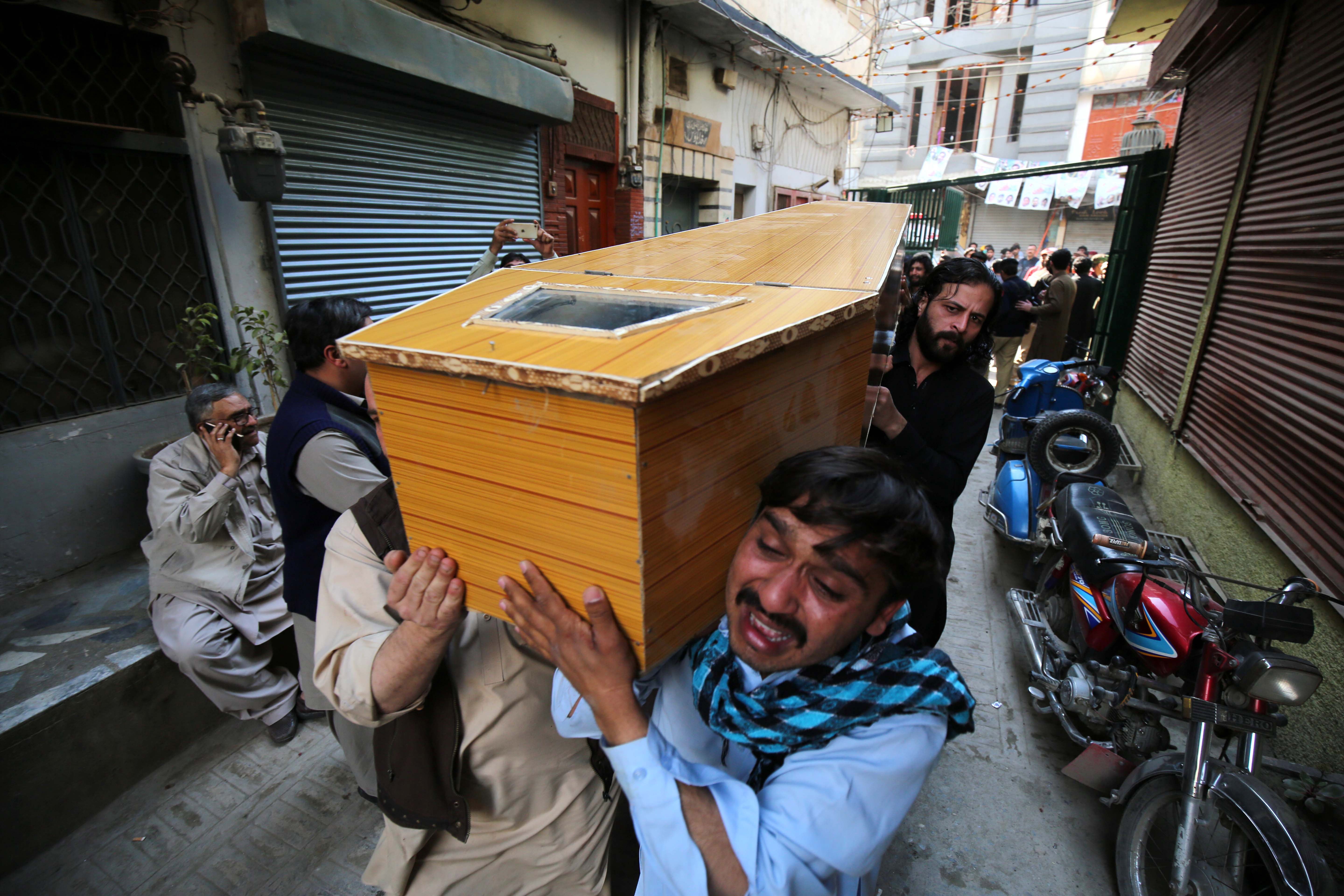
In recent months, the country has experienced a significant increase of violence, with dozens of military personnel killed in scores of attacks on army outposts along the border with Afghanistan.
Many attacks have been claimed by the Pakistani Taliban, who analysts say have been emboldened by the Afghan Taliban’s seizure of power last August.
Pakistan has urged Afghanistan’s new rulers to hand over Pakistani Taliban militants who have been staging their attacks from Afghanistan. The Afghan Taliban have said their territory will not be used to stage attacks against anyone, but until now have not handed over any wanted Pakistani militants.
The latest attack comes as the Australian cricket team are touring Pakistan for the first time in more than two decades and are staying in Islamabad, 140km (87 miles) from Peshawar.
Pakistan recently started hosting international teams again after security concerns forced them to shift many games to the UAE.
Additional reporting by agencies



Join our commenting forum
Join thought-provoking conversations, follow other Independent readers and see their replies
Comments